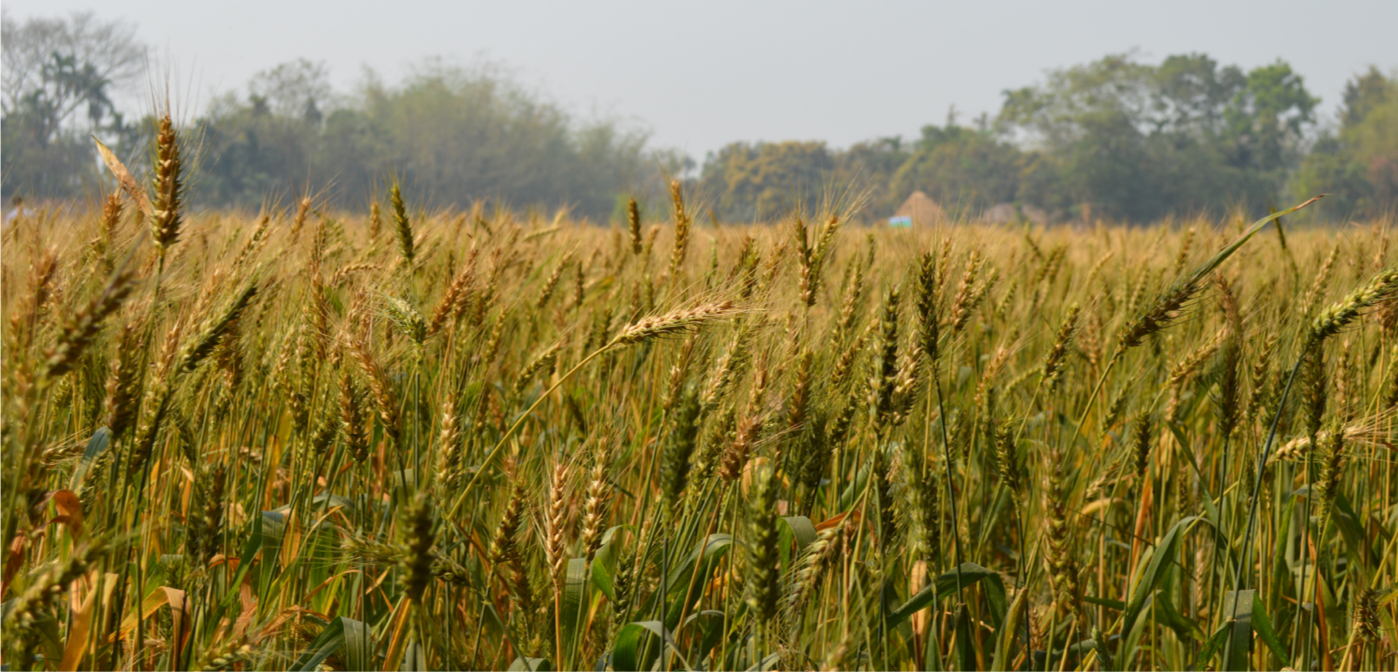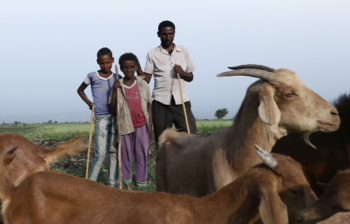- Current
- Overview
Over the past decade, GAFSP’s portfolio has steadily grown in both size and geography. As of December 2021, GAFSP’s US$2 billion portfolio comprised more than 190 public and private sector projects in 50 low-income countries, totaling US$1.6 billion in grant financing for public sector interventions, US$475.81 million for private sector interventions, and US$46.6 million for producer organization-led projects.
Portfolio Breakdown By Region
Africa
60%
Latin America & the Caribbean
9%
East Asia
12%
Other
8%
South Asia
11%
GAFSP Financing By Portfolio Type
77%
21%
2%
Supervising Entity By Contribution
USD millionsADB $89.36
IFAD $238.84
AfDB $414.27
IFC $475.81
FAO $65.21
WB $712.21
IDB $57.60
WFP $36.89

GAFSP provides grants to low-income countries to support national agriculture and food security investment plans.
GAFSP provides grants to low-income countries to support national agriculture and food security investment plans that governments develop together with farmers, agribusinesses, technical experts, and civil society through a participatory and transparent process.
As of December 2021, the public sector portfolio financed more than US$1.6 billion in grants, disbursing a little more than US$1 billion, and included 75 projects in 47 countries.
Portfolio Breakdown By Region
USD millionsAfrica
$880.90
Latin America & the caribbean
$150.20
East Asia
$199.27
Other
$133.90
South Asia
$198.84
Breakdown of Project Status
36%
37.2%
26.8%
Breakdown of Project Type
96%
4%
Co-Financing of our $2B Project Portfolio
USD millionsgafsp
$1281.26
government
$187.64
Supervising Entities
$1677.69
project participants
$63.68
official development Assistance
$264.14
Disbursed Funds
USD millionsPublic Sector Results
As of December 2021, GAFSP has provided direct support to more than 16 million people, including more than 6.6 million women (40 percent), to enhance their food security and livelihoods. This is an increase of more than 430,000 people over one year, despite constraints and setbacks caused by the global pandemic.
Number of People Reached
Highlighted Results
Indicator Reach Over Target (%)+105.16%
+112.58%
+127.90%
+115%
+161.40%
+553%
New Projects in 2021
In 2021, GAFSP allocated approximately US$121 million to nine countries as part of its Sixth Call for Proposals in the context of the global pandemic. This funding supports medium- to long-term COVID-19 response efforts for a more-sustainable, inclusive, and resilient recovery of food and agriculture systems in a changing climate and helps countries achieve their national agriculture and food development priorities, such as increasing availability of and access to safe and nutritious food, improving farmers’ incomes, and enhancing climate resilience, all while strengthening private sector engagement.
In addition, the GAFSP Steering Committee provisionally approved four country projects in Cambodia, Honduras, Mauritania, and Somalia totaling US$71 million, contingent on additional donor contributions to the Program in 2022.
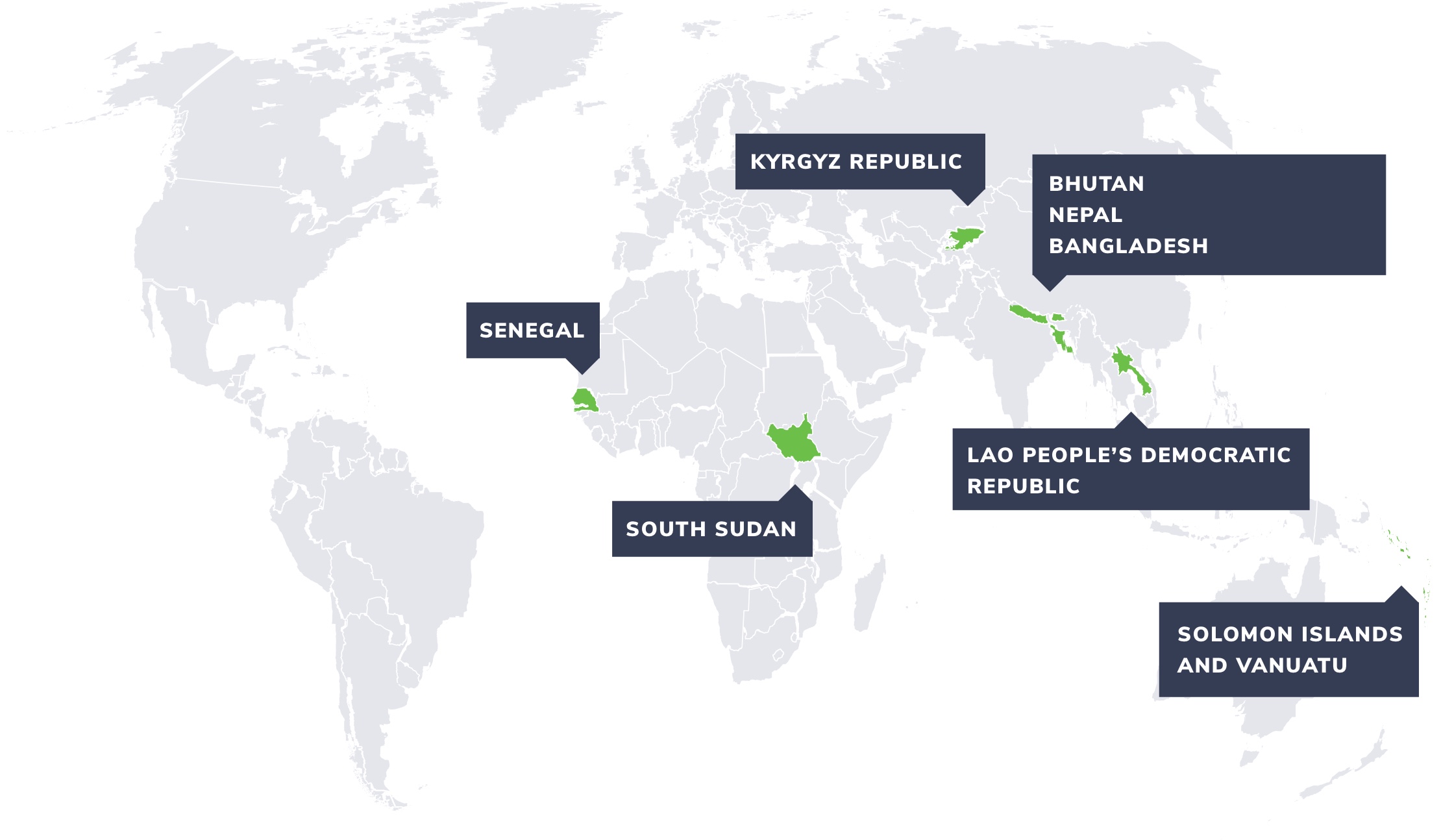
Bangladesh
In Bangladesh, US$20 million will help improve smallholder farmers’ food security and promote sustainable, inclusive, climate-resilient, and nutrition-sensitive agriculture practices.
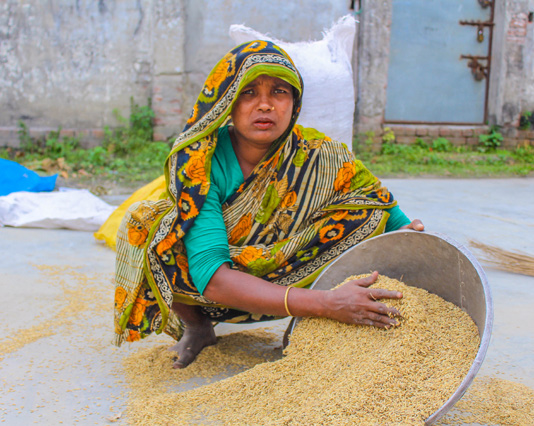
Bhutan
In Bhutan, US$13 million will commercialize the value chains of select agriculture commodities to contribute to post-COVID-19 economic recovery and the development of resilient food systems.
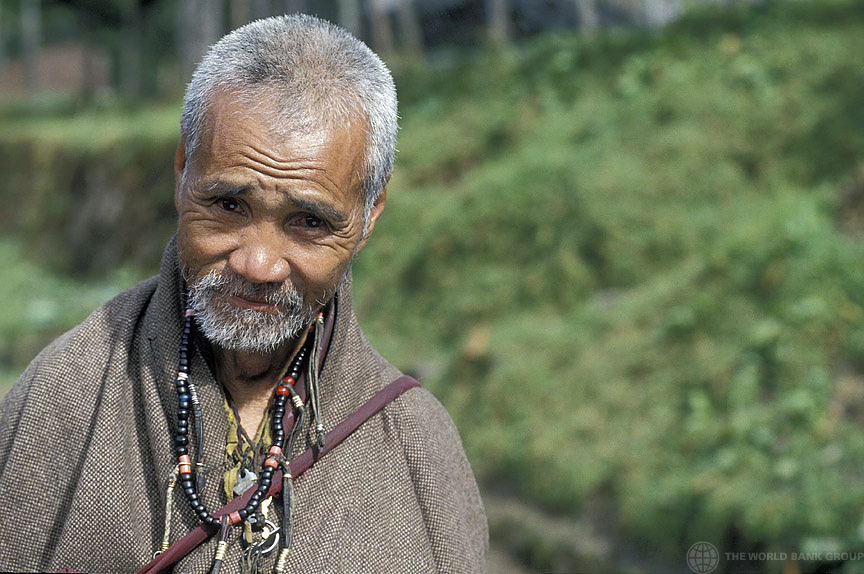
Kyrgyz Republic
In the Kyrgyz Republic, US$5 million will strengthen producer organizations, farmers’ organizations, and agribusinesses to expand their productive and organizational capacities, improve their climate resilience, and participate in emerging agri-food clusters.
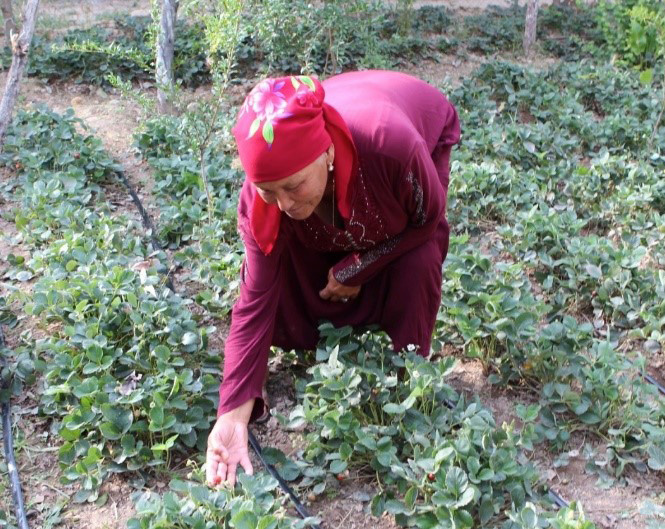
Lao People’s Democratic Republic
In Lao People’s Democratic Republic, US$17 million will improve and diversify vulnerable communities’ nutrition and socio-economic situations by adopting gender-transformative practices, building resilience to climate conditions, and improving production and marketing capacities.
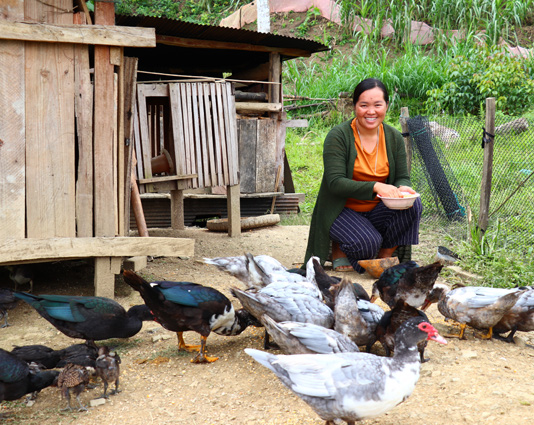
Nepal
In Nepal, US$12 million will improve the livelihoods and food security of poor households in targeted communities and enhance their access to agriculture markets and financial services.
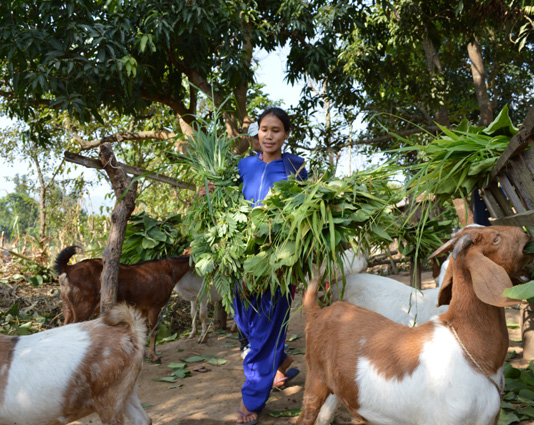
Senegal
In Senegal, US$20 million will enhance food and nutrition security and increase smallholder farmer incomes in five targeted regions.
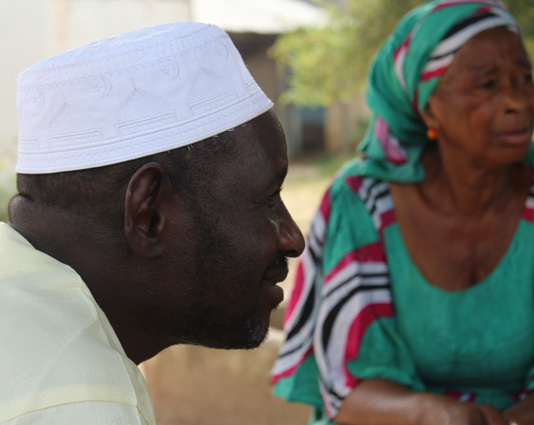
Solomon Islands and Vanuatu
In the Solomon Islands and Vanuatu, US$15 million will support a multi-country project to improve nutrition and increase farm incomes from resilient farming systems in rural communities.
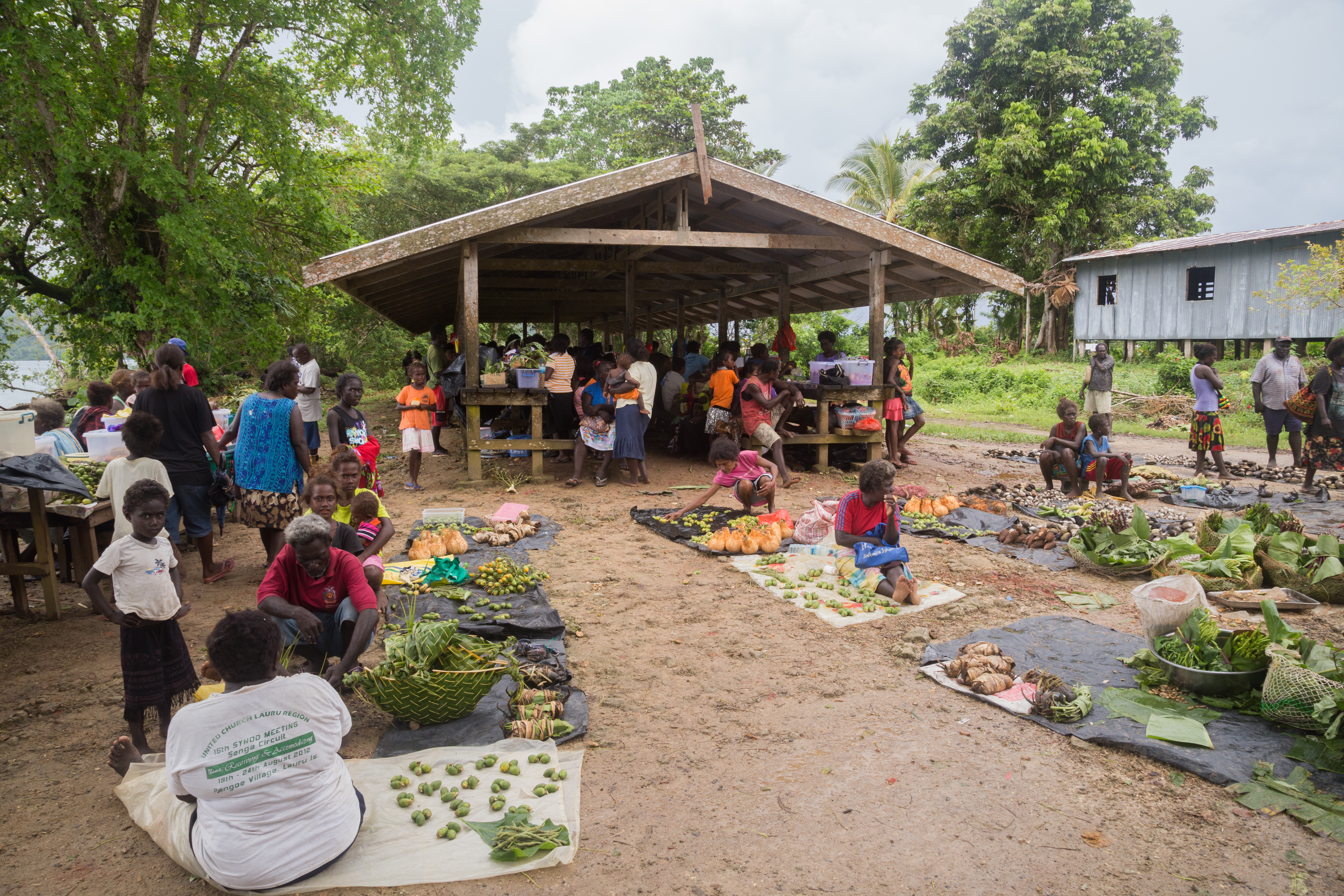
South Sudan
In South Sudan, US$20 million will enhance producer organizations’ capacities to improve social cohesion and serve as effective value chain actors and partners.
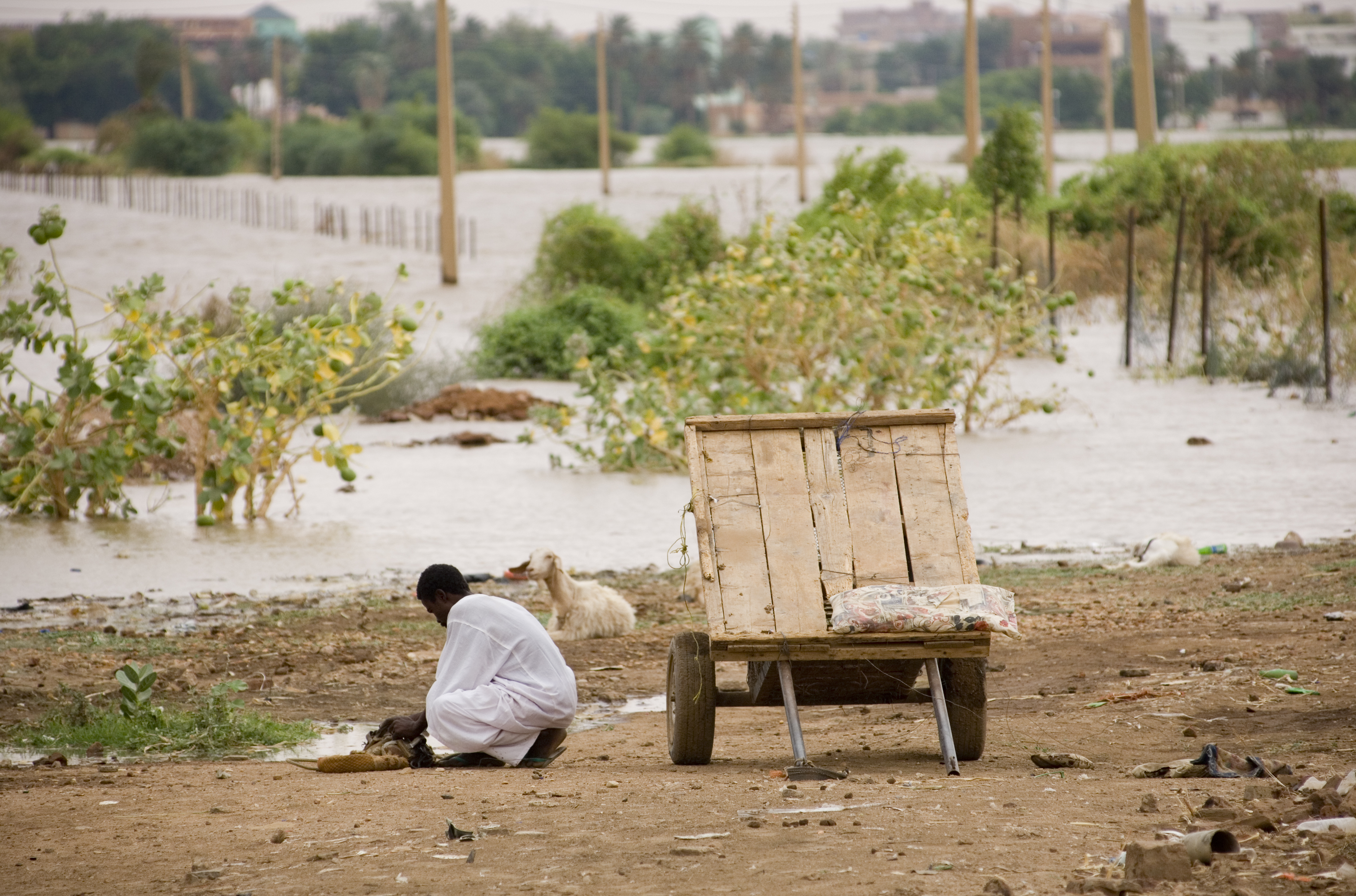

Together, Smallholder Farmers Achieve More
Evidence shows that by coming together and organizing their efforts, smallholder farmers can better negotiate access to inputs and prices to sell their produce, advocate for more-favorable credit from financial institutions, and pool resources to invest in technology and communal facilities. Recognizing this, GAFSP launched a pilot program in 2016 to provide small-scale grants and capacity development support producer organizations to lead, design, and implement the most-appropriate projects in their local contexts, while working with a development agency of their choice. The five pilot projects GAFSP awarded in Bangladesh, Mali, Senegal, and East Africa (Rwanda and Uganda) with US$15.9 million have benefited more than 80,000 people to date, with activities ranging from providing financing services with low transaction costs and establishing guarantee funds to provide farmers with credit to providing training on production, harvesting, and processing practices.
Because of this initiative, producer organizations were able to respond quickly when COVID-19 hit, for example, by advocating with the government, establishing measures to ensure production continuity, preventing post-harvest losses, and providing training on good hygiene practices and processing techniques. With additional financing provided by GAFSP in 2020, smallholders could scale up or implement new activities, including access to food packages, supplies for home gardening activities, and agricultural inputs for forthcoming growing seasons to enhance resilience. Now, five years after successfully testing the pilot and learning from the experience, GAFSP has scaled up this model and is providing small-scale grants directly to producer organizations to help them meet their needs for agricultural financing.



New Projects in 2021
In 2021, GAFSP allocated close to US$30 million to projects designed and led by producer organizations in 12 countries.

PILOT & PO-LED
PILOT
PO-led
Bangladesh
In Bangladesh, a US$3.26 million grant to Sara Bangla Krishak Society will improve the livelihoods of smallholder farmers in climatic hotspots and strengthen their resilience to public health and climate-induced crises in targeted areas.
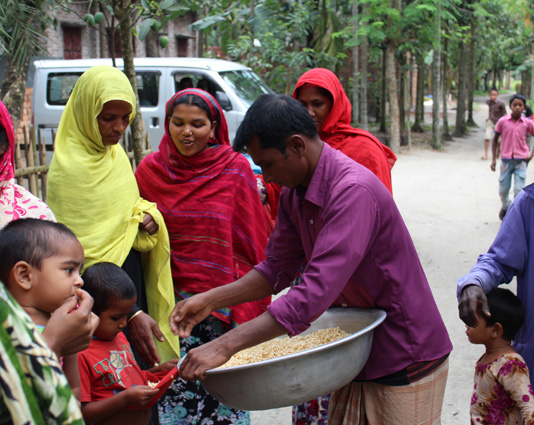
Burundi
In Burundi, a US$2.34 million grant to Confédération des Associations des Producteurs Agricoles pour le Développement will support a target group of smallholder farmers to strengthen their resilience against the effects of the COVID-19 pandemic, while sustainably improving their income and food security.
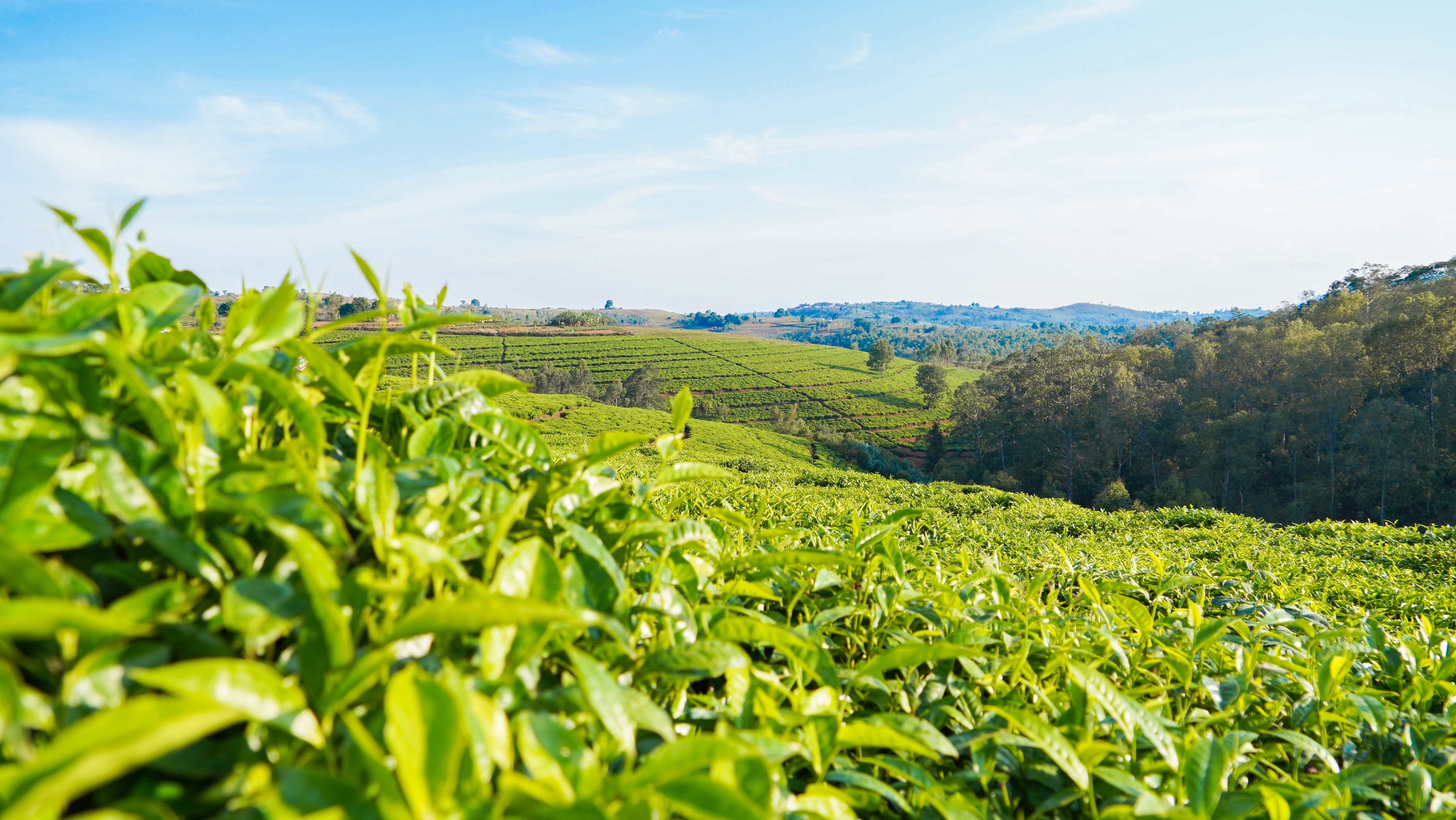
Cambodia
In Cambodia, a US$1.79 million grant to Cambodian Agriculture Cooperative Corporation Plc. will support smallholder farmers’ recovery from COVID-19 in the most-impoverished provinces by developing value chains and improving food security and nutrition.
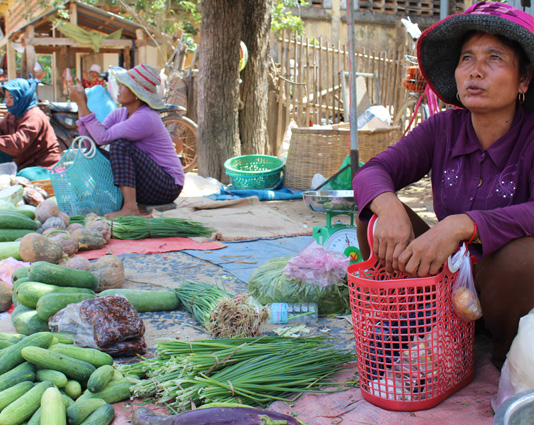
Democratic Republic of Congo
In the Democratic Republic of Congo, a US$1.65 million grant to Confédération Paysanne du Congo will sustainably improve smallholder farmers’ income and food security that has been affected by the COVID-19 and climate change crises.
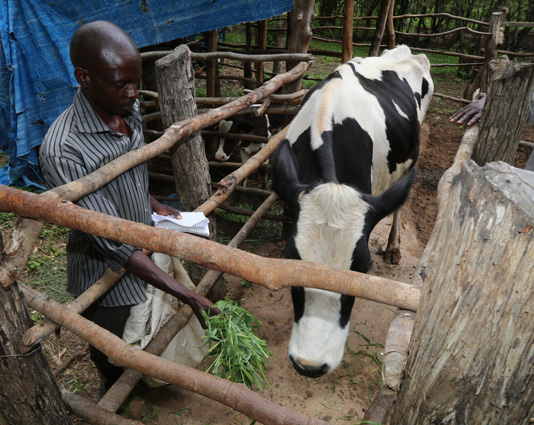
Haiti
In Haiti, a US$3.0 million grant to Réseaux des Organisations de Producteurs et Productrices de la Grand’Anse will increase smallholder farmers’ food security and resilience in a target area by building better and more-sustainable livelihoods in a post-disaster and climate change context.
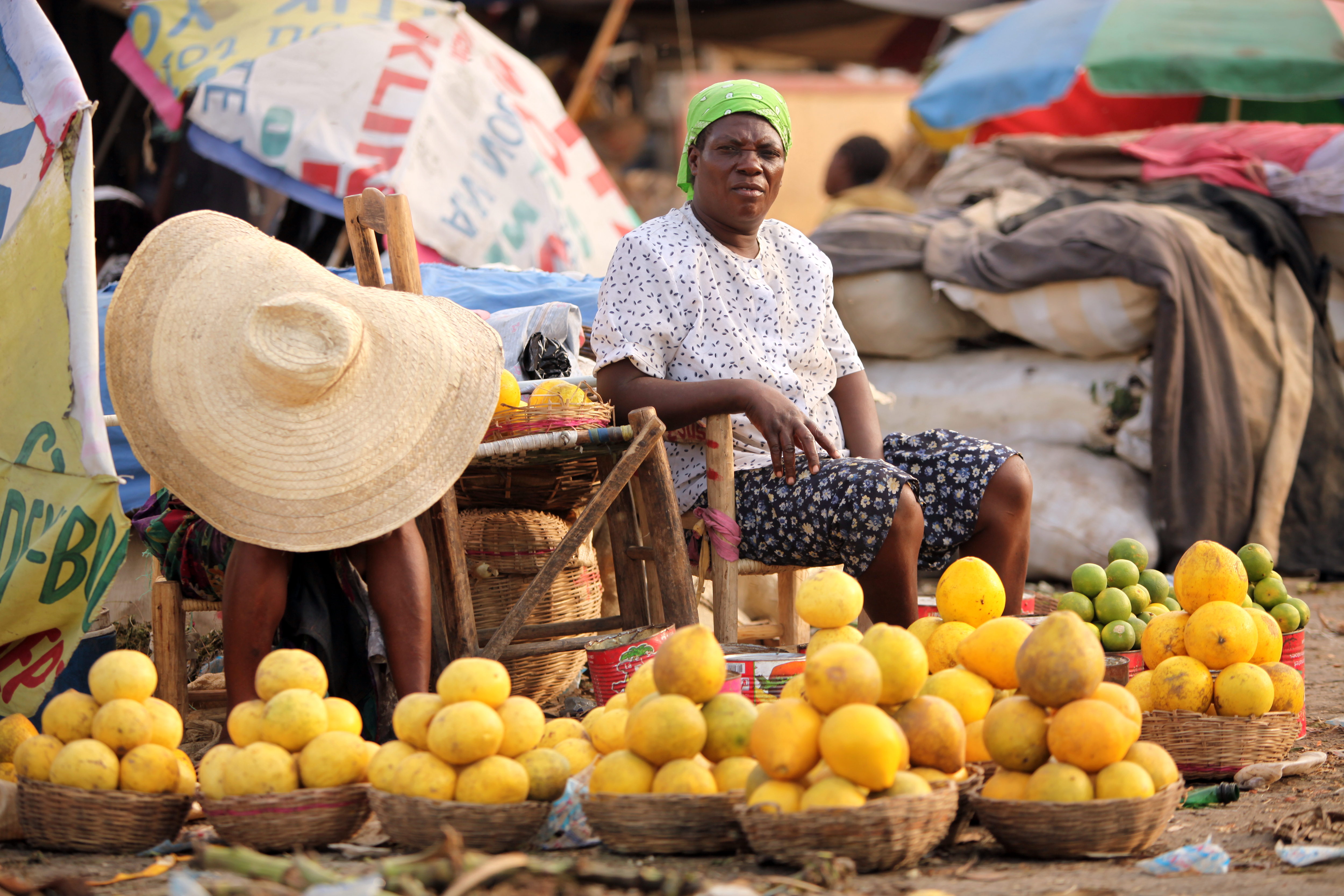
Honduras
In Honduras, a US$2.13 million grant to Alternative Community Economy Network will improve climate resilience and food security through economic empowerment and agricultural system transformation in three target areas in the country’s Dry Corridor.
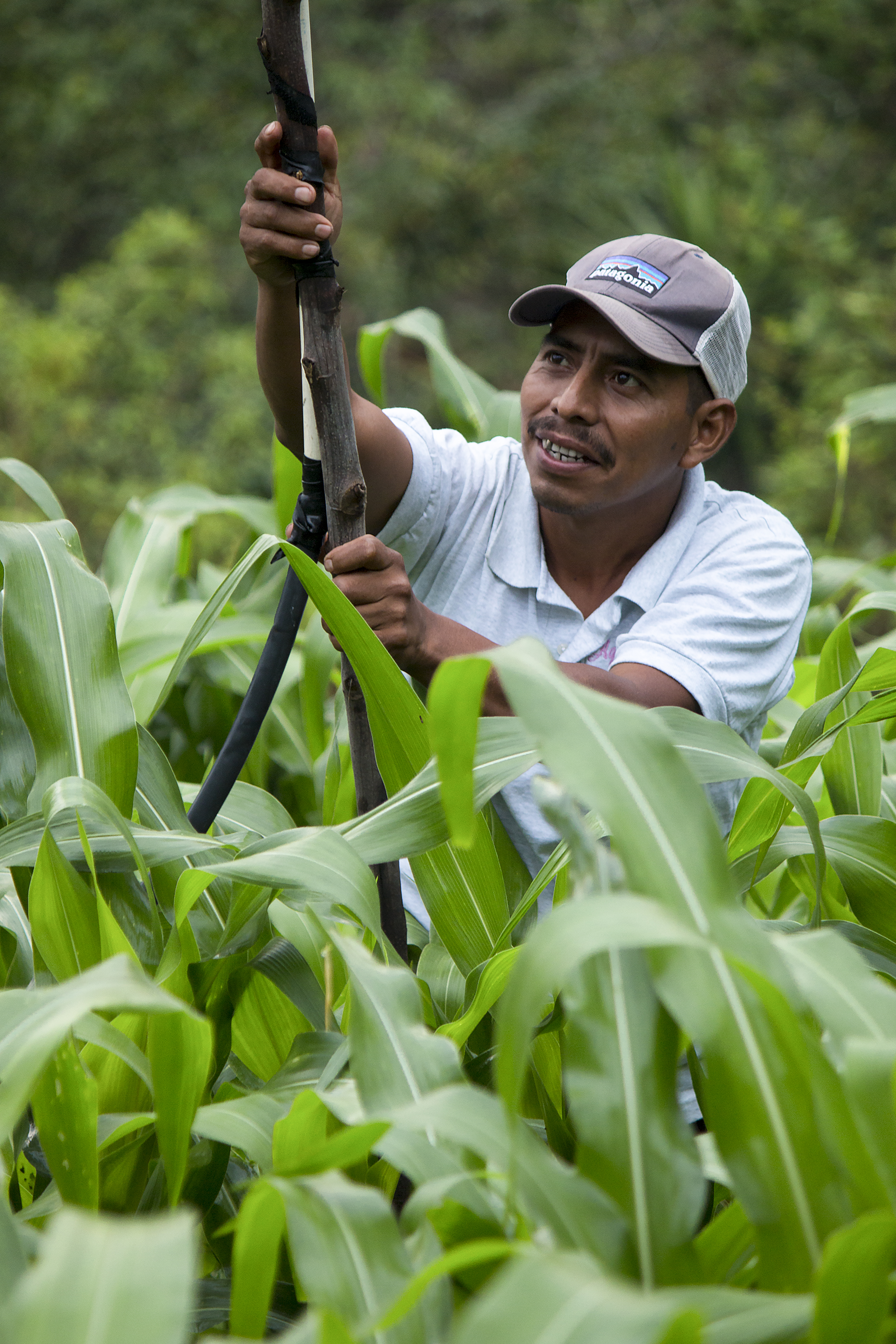
Maldives
In the Maldives, a US$2.64 million grant to Addu Meedhoo Cooperative Society will develop economically viable producer organizations, empowering them to take a stronger role in the agriculture value chains; contribute to a resilient and robust food system; help overcome the severe impacts of climate change; and help “build back better” from the impacts of COVID-19.
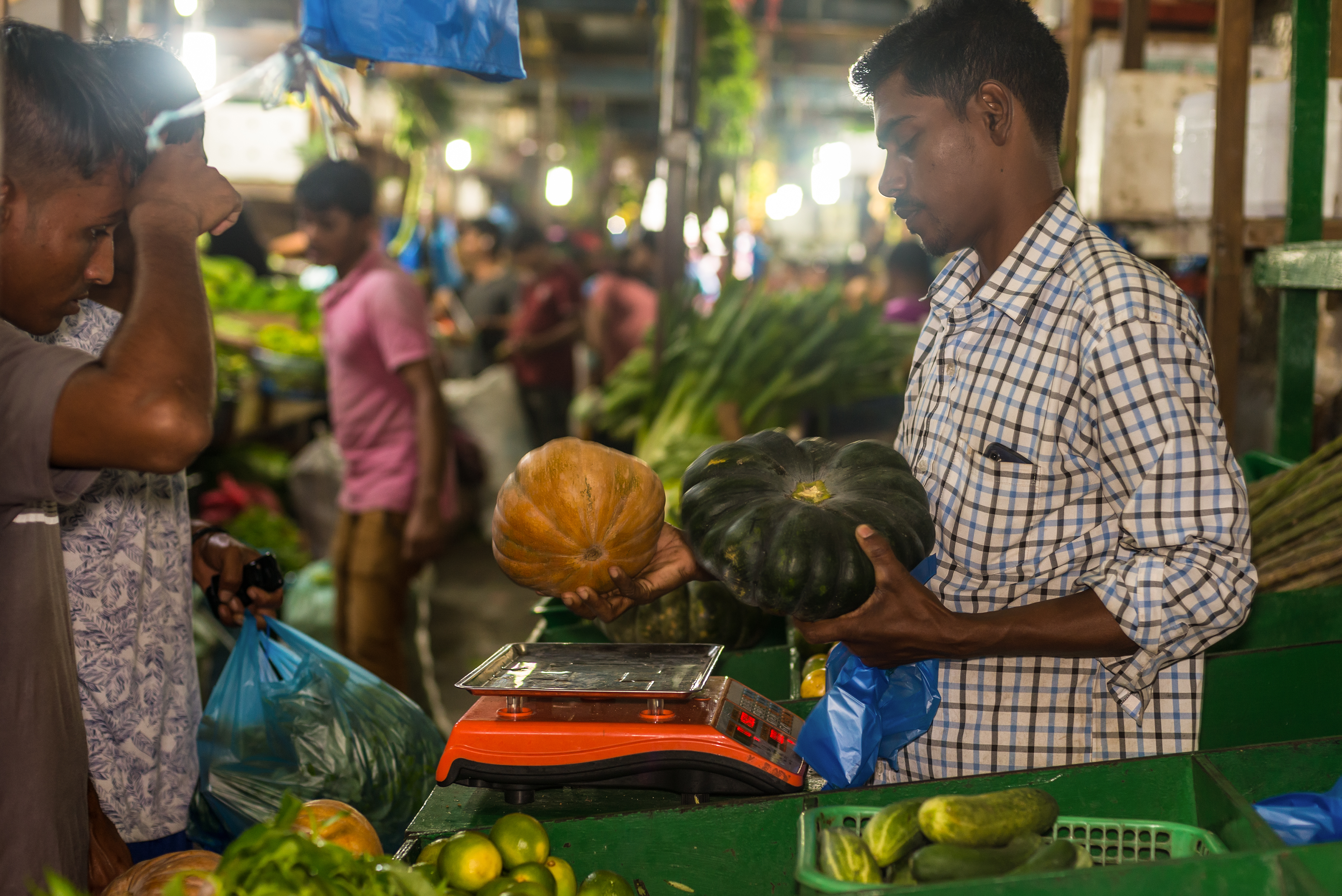
Nicaragua
In Nicaragua, a US$3.21 million grant to the National Union of Farmers and Ranchers will increase agricultural income and food security for smallholder farmers and aid recovery from COVID-19 impact in selected areas of the Dry Corridor.
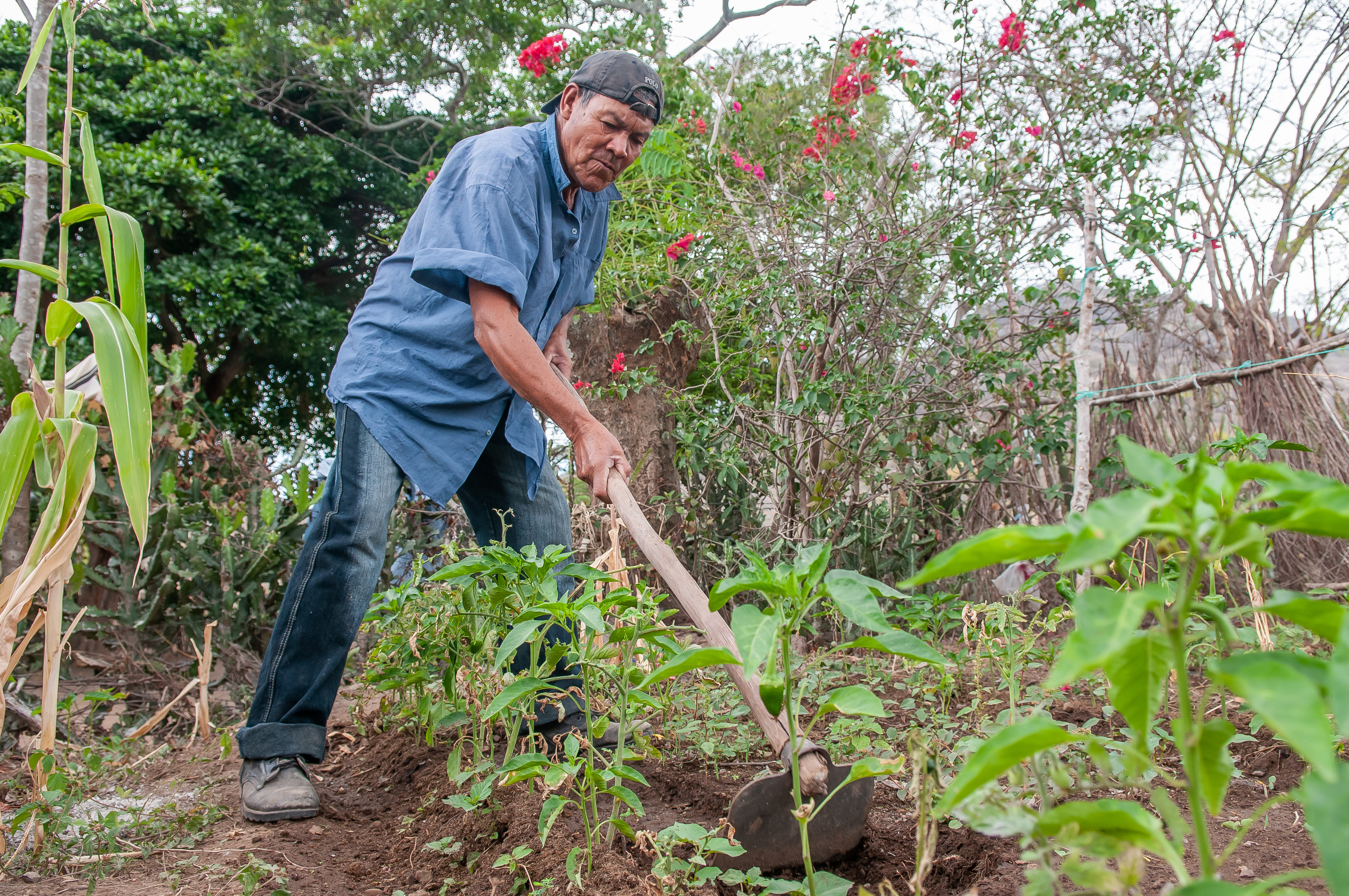
Niger
In Niger, a US$2.71 million grant to Fédération des Unions de Groupements Paysans du Niger will improve incomes, food security, and nutrition in seven communes in select regions by strengthening grassroots producer organizations and their unions, emphasizing women and youth as drivers of economic and social development.
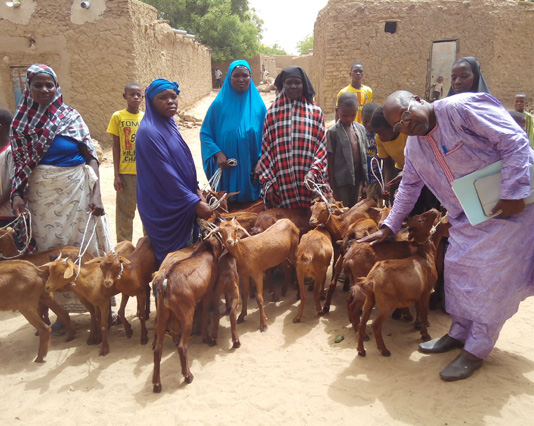
Senegal
In Senegal, a US$2.29 million grant to the National Council for Concertation and Rural Cooperation will increase young entrepreneurs’ incomes and their families’ food and nutrition security by increasing agricultural productivity and strengthening poultry producer organizations.
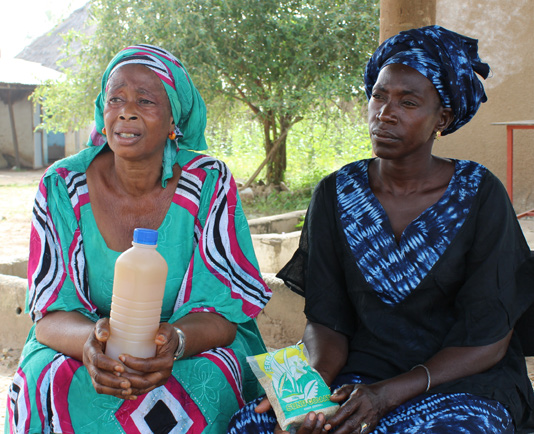
Tanzania
In Tanzania, a US$2.5 million grant to Mtandao wa Vikundi vya Wakulima will increase household incomes, address nutritional challenges arising from COVID-19, and reduce post-harvest losses by developing food supply services around horticulture production areas.
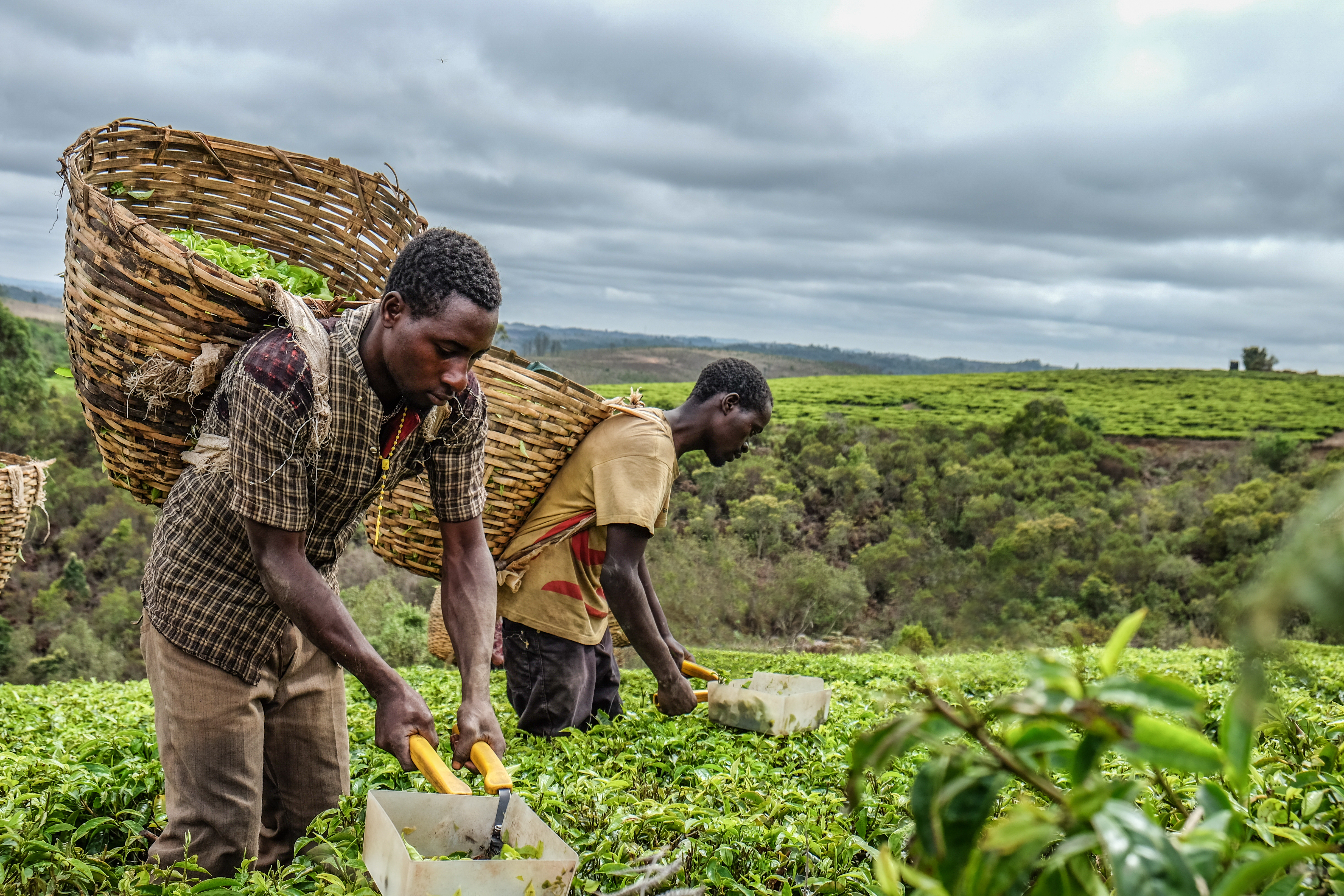
Uganda
In Uganda, a US$2.4 million grant to Soroti Sweet Potato Producers and Processors Association will build the resilience of the rural economy and livelihoods in select regions of Eastern Uganda by improving farmers’ market access and providing processing and value addition support, while increasing productivity and production of select crops.
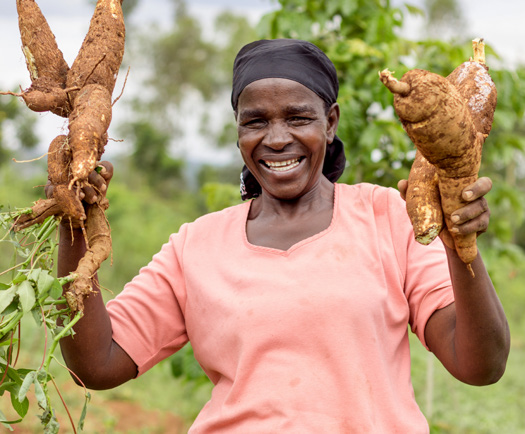
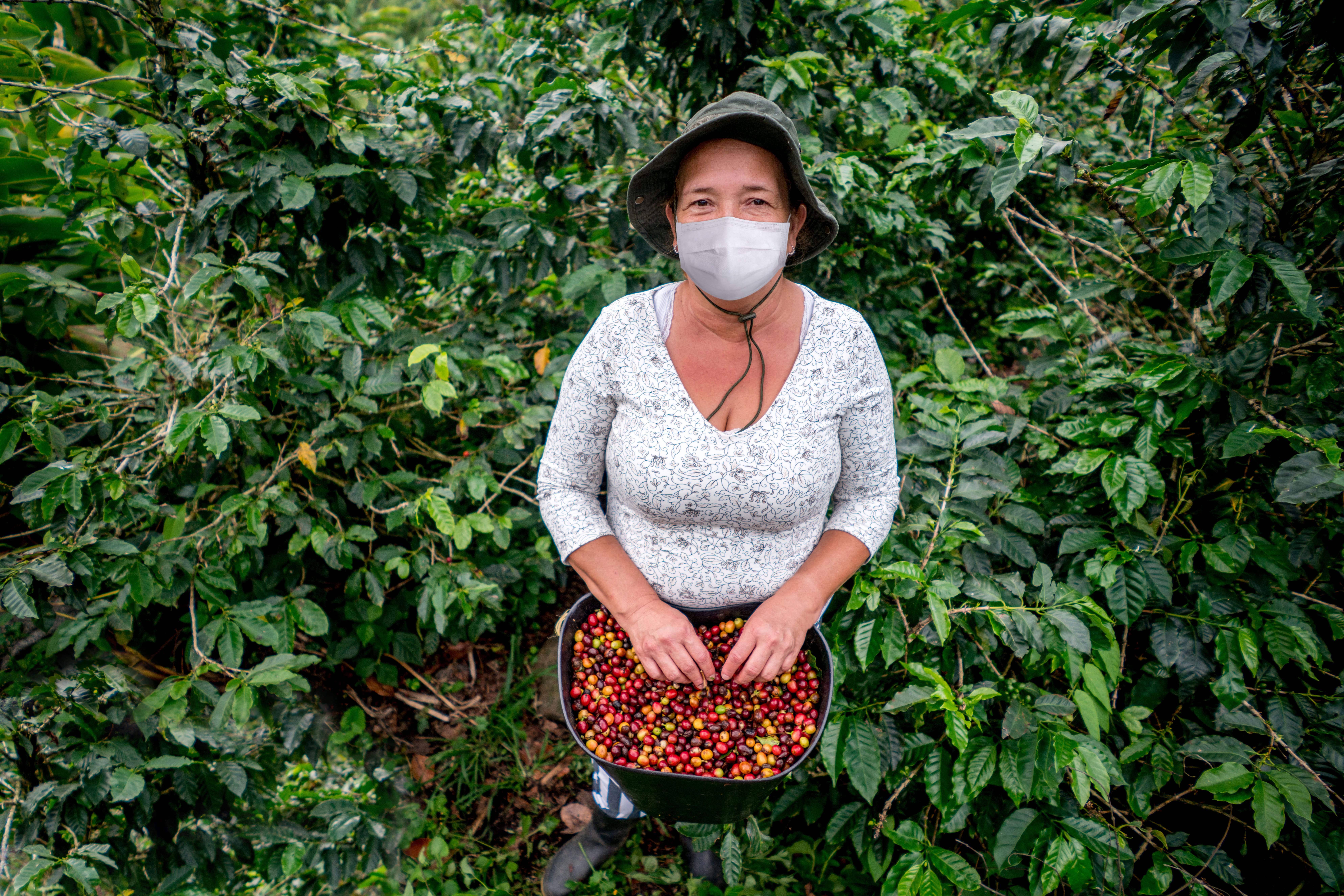
Innovative Products and Blended Concessional Finance Solutions
GAFSP’s Private Sector Window provides innovative products and blended concessional finance solutions to support private sector companies that promote inclusive business models. In total, these projects aim to reach more than 17 million people, many of whom are semi-commercial smallholders and subsistence farmers with less than two hectares of land.
GAFSP delivers high impact through investment projects and advisory services that build capacity and provide training and tools. GAFSP also provides loans and guarantees for its private investment projects through risk-sharing facilities with financial institutions, including social lenders, microfinance institutions, commercial banks, and financing direct agri-clients. As of June 2021, the Private Sector Window approved 81 investment projects in 27 countries totaling US$436 million and 88 complimentary advisory service engagements in 33 countries totaling US$39.81 million.
The flexibility of GAFSP funding, coupled with concessional features, helps mobilize and leverage commercial investment from global and local private sector investors. To date, GAFSP Private Sector Window projects leverage on average 1.9 times funding from IFC and 6.6 times in total financing.
Regional Breakdown of Investment & Advisory Services
Africa
$299.2
Latin America & the Caribbean
$32.4
East Asia
$48.7
Other
$14.7
South Asia
$21.4
Investment Project Status
37 Active Projects to Receive Disbursements
30 of 37
27
17
Advisory Services Project Status
33
16
39
Investment Project Portfolio by Product Type
As of June 30, 2021Risk Sharing Facility
21%
Sub Loan
22%
Equity
11%
Senior Loan
46%
Investment Project Portfolio by Theme
As of June 30, 2021Inclusive Business Model
16%
Increasing Nutritional Intake and Adopting High-Yield and Innovative Technology
11%
Improving Access to Finance
41%
Raising Agricultural Productivity and Improving Climate Resilience
32%
Advisory Services Portfolio by Product Type
As of June 30, 2021Advisory Services Project
90%
Investment Development Marketplace*
3%
Diagnostic
4%
Monitoring, Evaluation, and Learning
3%
*These types of products are no longer used at IFC.
Advisory Services Portfolio by Theme
As of June 30, 2021Access to Finance
8%
Raising Agricultural Productivity and Improving Climate Resilience
17%
Inclusive Business (Linking Farmers to Markets and Gender Focus)
44%
Increase Nutritional Intake and Adoption of High-Yield and Innovative Technology
17%
Ancillary Advisory Activities
15%
Private Sector Results
As of June 2021, projects financed by GAFSP’s Private Sector Window have reached more than 1.6 million farmers and provided direct employment to more than 24,000 people, nearly 40 percent of whom were women.
| Indicators | Baseline | Target | Results |
|---|---|---|---|
| Number of beneficiaries reached | 4,337,800 | 17,386,225 | 8,003,040 |
| Number of women reached | 2,188,900 | 8,693,113 | 4,001,520 |
| Number of farmers reached | 875,560 | 3,477,245 | 1,600,608 |
| Number of female farmers reached | 51,046 | 236,001 | 161,864 |
| Number of direct full-time jobs provided | 8,439 | 17,937 | 24,121 |
| Number of direct full-time jobs provided to woman | 4,281 | 7,485 | 9,298 |
*Numbers include projects that reported results as of June 2021 and projects that are closed.
Project Story
Senegal
International Finance Corporation (IFC) Kirène DairySenegal has grappled with drought and extreme weather in recent years, which has impacted the lives and livelihoods of the country’s smallholder farmers. In 2018, Kirène, a leading beverage company and Senegal’s second-largest processor and distributor of ultra-high temperature milk, partnered with IFC and GAFSP’s Private Sector Window to boost milk production, reduce production costs, and strengthen the company’s supply chain.
The project helped train commercial and smallholder farmers, including pastoralists, on animal husbandry and health, good agricultural practices, cooperative organization, and financial management. The project also introduced farmers to rain-fed and irrigated fodder production techniques because fodder—the fresh sorghum, maize, and grass that cows eat—is key to maintaining healthy herds.


